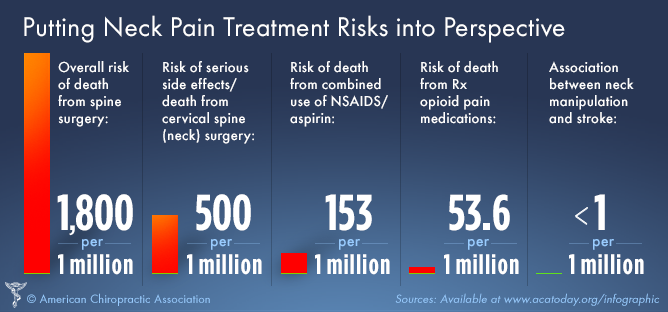Is There An Addiction Danger With Chiropractic Care Adjustments? Unraveling Fact From Fiction
Is There An Addiction Danger With Chiropractic Care Adjustments? Unraveling Fact From Fiction
Blog Article
Composed By-Svane Farrell
You could have heard that chiropractic care adjustments can cause a habit forming dependency, yet that's a common misconception. Lots of patients find relief without creating any type of type of addiction. It is essential to recognize real objective of these adjustments and exactly how they suit your general health and wellness strategy. So, exactly what does the science claim regarding chiropractic treatment and your well-being? Allow's explore the truths.
Comprehending Chiropractic Care Adjustments and Their Function
When you consider chiropractic adjustments, it's essential to comprehend their purpose and how they work. Recommended Resource site aim to correct misalignments in your back and joints, promoting much better alignment and activity. By applying webpage to details locations, chiropractics physician aid alleviate pain, improve feature, and improve your general health.
back pain treatment focuses on your body's capacity to recover itself, highlighting the connection in between the spinal column and the nerve system. When your back is straightened, it can lower nerve disturbance, enabling your body to function efficiently.
Regular adjustments may additionally assist avoid future problems, keeping you active and pain-free. Inevitably, chiropractic care adjustments offer to sustain your health, improve flexibility, and improve your quality of life.
Common Myths Regarding Dependency and Chiropractic Care
Many people hold mistaken beliefs regarding the connection between chiropractic care and dependency treatment. One common misconception is that chiropractic care modifications create an addiction-like dependency. In truth, several individuals locate remedy for discomfort and discomfort, but this does not imply they establish an emotional or physical dependency.
An additional misconception is that chiropractic practitioners are simply attempting to keep you returning for even more modifications. A lot of chiropractic specialists prioritize your well-being and aim for long-lasting health as opposed to regular sees.
Furthermore, some believe chiropractic treatment can change standard addiction treatments, yet it must match, not replace, evidence-based treatments. Comprehending these myths can help you make educated selections about your wellness and wellness without dropping target to misinformation.
The Science Behind Chiropractic Care Adjustments and Person Experience
While some may question the effectiveness of chiropractic changes, a growing body of research sustains their role in easing pain and boosting general feature.
Researches show that spinal control can minimize discomfort from conditions like lower pain in the back, tension migraines, and neck discomfort. When you undergo chiropractic treatment, the changes intend to restore correct placement, improving your body's natural recovery capacities.
Lots of individuals report raised wheelchair and a better feeling of well-being after treatment. In addition, the restorative connection you construct with your chiropractic physician can improve your experience, as they offer customized care customized to your demands.
This mix of clinical backing and favorable person experiences helps clear up why chiropractic care changes are effective for lots of individuals looking for alleviation.
Conclusion
In conclusion, chiropractic modifications aren't addictive; they're created to improve your health and advertise proactive health maintenance. By exposing the myths bordering dependency, it's clear that these treatments can offer significant alleviation without creating a cycle of dependency. Welcoming chiropractic treatment as a corresponding method to conventional therapies can bring about better health end results. So, if you're taking into consideration modifications, felt confident that they're about improving your quality of life, not producing a dependence.
